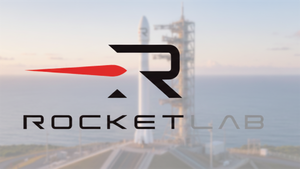Only 20% of grocery buyers routinely consider environmental impacts when shopping

Only one in five grocery shoppers in the U.S. routinely thinks about the environmental impacts of their choices when preparing their lists and buying products, a survey out this month from the Marine Stewardship Council shows. And just one-third consider those impacts even some of the time.
The results of the poll may not be so surprising given the macroeconomic climate in the country: Consumers who saw grocery prices jump considerably as inflation soared in 2022 and 2023 remain focused on costs just as the imposition of tariffs is putting more pressure on supply chains and prices.
Furthermore, 36% of consumers believe it’s at least somewhat important for businesses to focus on sustainability even with the rising cost of living, and over a third believe it should be the priority.
One bright spot in the survey: Gen Z and Millennial grocery shoppers are more than twice as likely as their 55-plus counterparts to include environmental considerations in their meal planning and shopping.
“It is not surprising that cost is top of mind when it comes to buying groceries these days. This data, however, shows that even amid rising prices at the cash register, Americans still want to make choices that are good for the environment, especially among younger generations,” said Erika Feller, Americas director, Marine Stewardship Council.
“I’m hopeful that American shoppers will keep the planet in mind when creating a budget-friendly meal plan, and that sustainable seafood is in everyone’s grocery cart,” she said in press release on the organization’s website.
The council pointed out that global food production has a major impact on the planet, generating approximately one-third of human-caused greenhouse gas emissions and contributing to climate change.
The poll revealed that a quarter of respondents believe fish and seafood is the most environmentally sustainable animal protein, closely followed by chicken.
And while 33% of poll respondents don’t know what the most environmentally sustainable animal protein is, studies show that wild fisheries have a lower greenhouse gas footprint than land-based animal proteins, making it a good choice for people prioritizing sustainability in their grocery shopping, the council said.
The Marine Stewardship Council, a global nonprofit tackling sustainable fishing, works with fisheries and supply chain companies through its certification and ecolabeling program to give shoppers an easy way to identify certified sustainable seafood with its blue fish ecolabel.
The MSC ecolabel can be found on seafood packaging at a variety of price points in grocery stores, convenience stores, independent food retailers and some restaurants nation-wide.
Around 1 in 5 shelf-stable seafood products—like canned, pouched and tinned options—sold in U.S. grocery stores are MSC certified and carry the blue fish label according to data from the FMI Power of Seafood Report compared to MSC sales data.
During Earth Month (April 2025) and beyond, MSC is educating consumers on the benefits of purchasing sustainable seafood for both their health and the health of the ocean. Shoppers can follow these three simple tips to make their grocery hauls healthy, affordable and sustainable:
- Incorporate one to two servings of fatty fish like salmon, sardines and tuna per week to get the health benefits of anti-inflammatory omega-3s EPA + DHA.
- Affordable and convenient options are easily available at wallet-friendly prices, such as pantry-staples tinned and pouched fish.
- To identify seafood that’s wild-caught and certified sustainable, look for the MSC blue fish label.
Read more: Turkeys raised on regenerative farms are more nutritious
More News
View More




Recent Quotes
View MoreQuotes delayed at least 20 minutes.
By accessing this page, you agree to the Privacy Policy and Terms Of Service.